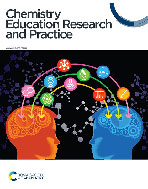What works? What's missing? An evaluation model for science curricula that analyses learning outcomes through five lenses
Abstract
Science is rapidly changing with vast amounts of new information and technologies available. However, traditional instructional formats do not adequately prepare a diverse population of learners who need to evaluate and use knowledge, not simply memorize facts. Moreover, curricular change has been glacially slow. One starting goal for curricular change can be identifying the features of a current curriculum, including potential areas for improvement, but a model is needed to accomplish that goal. The vast majority of studies related to curricular change have been conducted in K-12 environments, with an increasing number in post-secondary environments. Herein, we describe a model for science curriculum evaluation that we designed by integrating a number of different approaches. That model evaluates the intended, enacted, and achieved components of the curriculum, anchored by analyzing learning outcomes through five lenses: (i) a scientific Framework reported by the US National Research Council, (ii) systems thinking, (iii) equity, diversity, and inclusion, (iv) professional skills, and (v) learning skills. No curriculum evaluation models to date have used the five learning outcomes lenses that we describe herein. As a proof of principle, we applied the evaluation model to one organic chemistry course, which revealed areas of strength and possible deficiencies. This model could be used to evaluate other science courses or programs. Possible deficiencies may be addressed in other courses, in the course at hand, or may not be deemed necessary or important to address, demonstrating the potential for this evaluation to generate areas for discussion and ultimately, improvements to post-secondary science education.


 Please wait while we load your content...
Please wait while we load your content...